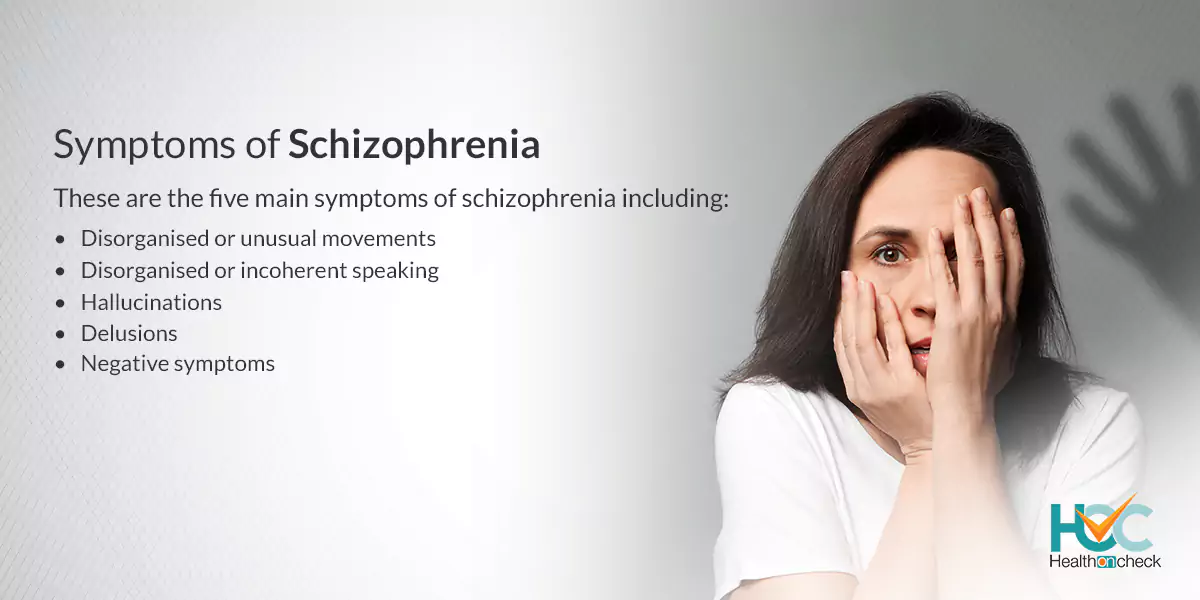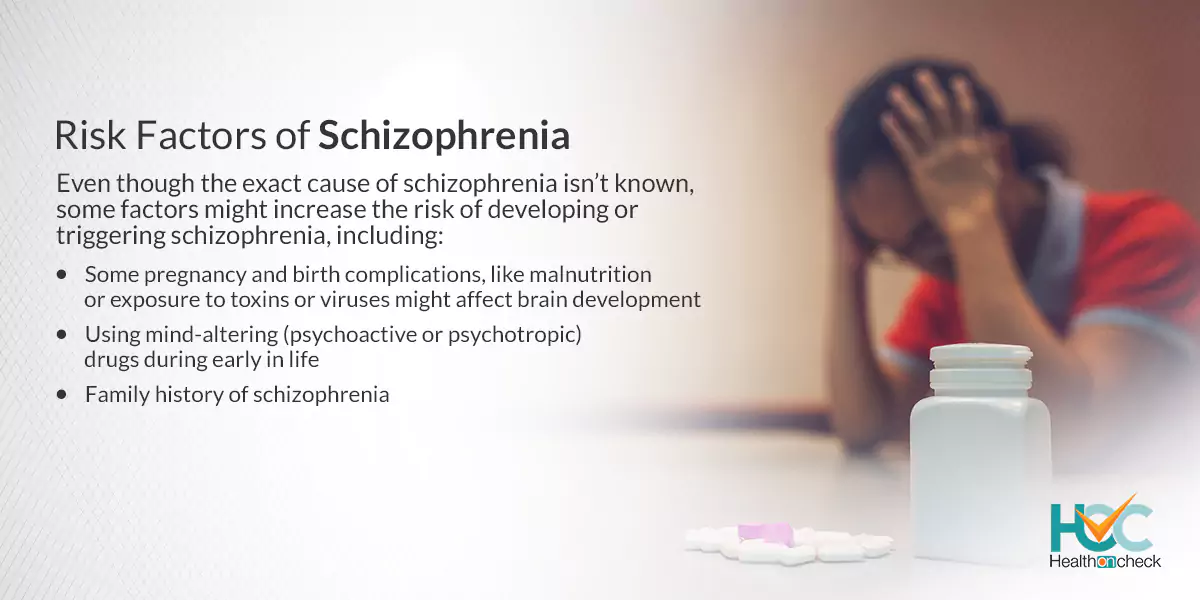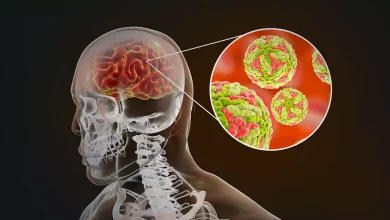What is Schizophrenia?

Schizophrenia is a serious mental condition where people interpret reality abnormally. One might develop schizophrenia in a combination of hallucinations, delusions, and very disordered thinking and behaviour that affects daily functioning, and could be disabling. If not treated then schizophrenia can negatively impact your relationships be it professional, romantic, social, and others. It can create problems in organising your thoughts and can put you at risk for injuries or other health complications. If treated early then your symptoms can be kept under control before serious complications start developing and might help improve the long-term outlook.
What are the Types of Schizophrenia?
Psychiatrists and psychologists used to refer to several types of schizophrenia, such as catatonic schizophrenia and paranoid schizophrenia. However, the types weren’t quite useful to diagnose or treat schizophrenia. Nowadays, experts refer to schizophrenia as a spectrum of conditions, such as:
– Schizotypal personality disorder ( it falls under the category of personality disorders).
– Delusional disorder.
– Brief psychotic disorder.
– Schizophreniform disorder.
– Schizoaffective disorder.
– Other schizophrenia spectrum disorders (specified or unspecified).
What are the Symptoms of Schizophrenia?
These are the five main symptoms of schizophrenia including:
– Delusions
Here people with schizophrenia start to believe in false things as there’s much evidence that those beliefs are wrong. For instance, you might believe that someone is controlling what you think, say, or do but in reality, it isn’t so.
– Hallucinations
You think that you can view, hear, smell, touch, or taste things that actually don’t exist, such as hearing voices.
– Disorganised or incoherent speaking
Here people with schizophrenia might face trouble organising their thoughts while speaking. It may seem like trouble staying on topic, or their thoughts may be so jumbled that people can’t understand them.
– Disorganised or unusual movements
People with schizophrenia may move differently than people around them. For instance, they may be around a lot for no obvious reason, or may not move much at all.
– Negative symptoms
It means a decrease or loss of ability to do things as expected. For instance, people with schizophrenia may stop making facial expressions, or speak with a flat, emotionless voice. A lack of motivation is also part of the negative symptoms when someone with schizophrenia doesn’t want to socialise or do things they usually enjoy.
Because of these symptoms, people with schizophrenia might:
– Feel suspicious, paranoid or scared.
– Care less about hygiene and appearance.
– Experience anxiety, depression, and suicidal thoughts.
– Alcohol, nicotine, prescription medications, or recreational drugs usage to try to ease symptoms.
What are the Causes of Schizophrenia?
The causes of schizophrenia are not clear, but researchers believe that it might happen because of a combination of genetics, brain chemistry, and environment.
Problems with some specific naturally produced brain chemicals, such as neurotransmitters known as dopamine and glutamate, might contribute to schizophrenia. Neuroimaging studies have shown differences in the brain structure and central nervous system of people suffering from schizophrenia. While researchers aren’t sure about the significance of these changes, it’s an indication that schizophrenia is a brain disease.
What are the Risk Factors of Schizophrenia?
Even though the exact cause of schizophrenia isn’t known, some factors might increase the risk of developing or triggering schizophrenia, including:
– Family history of schizophrenia
– Some pregnancy and birth complications, like malnutrition or exposure to toxins or viruses might affect brain development
– Using mind-altering (psychoactive or psychotropic) drugs during early in life
What are the Complications of Schizophrenia?
The complications of schizophrenia might include:
– Suicidal thoughts and suicide attempts
– Anxiety
– Obsessive-compulsive disorder (OCD)
– Depression
– Alcohol or other drugs, including nicotine usage
– Problems in job or school
– Financial problems and homelessness
– Social isolation
– Health and medical issues
– Aggressive behaviour, although it’s not common
How Schizophrenia is Diagnosed?
Diagnosing schizophrenia involves ruling out other mental health disorders and making sure that symptoms are not because of medication, a medical condition, or substance abuse.
Schizophrenia might be diagnosed through:
– Physical exam
It helps to rule out other problems that may cause symptoms and also to check for any linked complications.
– Tests and screenings
It usually includes tests to rule out conditions with the same symptoms, and screening for drugs and alcohol. The doctor might also prescribe imaging studies, like an MRI or CT scan.
– Psychiatric evaluation.
Here a doctor examines your mental status by observing appearance and demeanor and asks questions about moods, delusions, hallucinations, substance use, and thoughts of violence or suicide. A discussion of family and personal history is also done.
What are the Treatment Options Available for Schizophrenia?
Schizophrenia isn’t curable, but it can be often treated. In a small percentage of instances, people can fully recover from schizophrenia but there is not a cure because it’s difficult to know who will relapse and who won’t. Because of that, doctors consider people who recover from this condition “in remission.”
Treating schizophrenia generally involves a combination of medication, therapy, and self-management techniques including:
– Antipsychotics
It blocks how your brain uses some specific chemicals for cell-to-cell communication.
– Other medications
You may be prescribed other medications for symptoms that occur side by side alongside or as a result of your schizophrenia symptoms. They might also refer to medications to help decrease the side effects of antipsychotic medications like tremors.
– Psychotherapy
Here talk therapy methods such as cognitive behavioural therapy (CBT) are given which can help you deal with and manage your condition. Long-term therapy is also helpful with secondary problems alongside schizophrenia, including anxiety, depression, or substance use problems.
– Electroconvulsive therapy (ECT).
You might be recommended electroconvulsive therapy (ECT) which includes using an electrical current that is applied to your scalp, which helps to stimulate specific areas of your brain. The stimulation leads to a brief seizure and helps to improve brain function in case you have severe depression, agitation, and other issues. If you have ECT, you will be given anaesthesia to fall asleep for this procedure and won’t feel any pain.
Living with Schizophrenia
Schizophrenia can be stressful and overwhelming for you and your loved ones but you should know that despite stereotypes, this condition can be treated, and living a normal life is quite possible. If you think you have symptoms of schizophrenia, it’s quite vital to meet and consult with a doctor preferably a psychiatrist or psychologist as soon as possible. A good mental health professional will treat you without any concern about you being ashamed, judged, or embarrassed.
Whom to Consult?
If you notice that you or someone you know might have symptoms of schizophrenia, then you should discuss your concerns. Even though you can’t force someone to ask for professional assistance, you can encourage support and help your loved one to consult a qualified doctor or mental health professional. Early diagnosis and treatment are quite helpful for early recovery and managing this condition.






